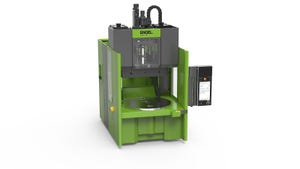Process proposes conversion of natural gas into ethylene without steam cracking
San Francisco startup Siluria Technologies claims it has invented a proprietary catalytic process to directly convert natural gas into ethylene, without the need for energy- and cash-intensive steam cracking. The company describes its approach as mimicking nature, growing inorganic materials with a bottom-up approach, as opposed to the more conventional top-down synthetic approach.
June 30, 2010
claims it has invented a proprietary catalytic process to directly convert natural gas into ethylene, without the need for energy- and cash-intensive steam cracking. The company describes its approach as mimicking nature, growing inorganic materials with a bottom-up approach, as opposed to the more conventional top-down synthetic approach. At the heart of Siluria's proposed technology are nanowire catalysts with unique surfaces, structures, and shapes that the company says are robust, stable at high temperatures, and compatible with the existing infrastructure of the petrochemical industry.
Developed at the Massachusetts Institute of Technology (MIT) by MIT materials science, engineering, and biological engineering professor Angela Belcher, the goal of the catalyst technology is to convert methane, the principal component of natural gas, directly into ethylene—the chemical building block of many key polymers, including the world's most used plastic by volume, polyethylene. Belcher's research is in the emerging field of bioengineering, creating man-made versions of natural organisms, like viruses, to work with inorganic materials on a nanoscale.
Siluria reports that ethylene is the largest global commodity chemical, with 140 million tons used annually and a total industry value of $160 billion per year. The company says that the steam cracking currently used for ethylene production consumes more energy than other chemical processes and is the largest contributor to greenhouse emissions in the chemical industry. Clint Bybee, co-founder and managing director, ARCH Venture Partners, one of Siluria's investors, speculates that the company's proposed process will save the petrochemical industry tens of billions of dollars per year in raw material and operation costs. Siluria was founded in 2008 by MIT's Belcher, with the backing of a group of venture capitalists, including Alloy Ventures, ARCH Venture Partners, Kleiner Perkins Caufield & Byers, Altitude Life Sciences Ventures, Lux Capital, and Harris & Harris.
About the Author(s)
You May Also Like


